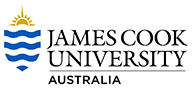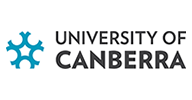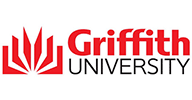You are required to complete 120 hours of placement to satisfy this component of your qualification. Completing placement is compulsory, and you will be expected to manage family and work commitments in order to complete your shifts.
Routinely, placement will be in a full-time block of 40 hours per week for three weeks.
- Shifts are determined by your placement facility; these may include early mornings or late nights, any day of the week, and public holidays.
- Please expect to travel within a 45 to 60 minute radius of your local area, as per Google maps, to attend vocational placement. If you reside outside of your course location, your placement will be managed on an individual basis, dependent upon your location. Placement availability may require personal travel and accommodation arrangements.
Some TAFE Queensland locations offer vocational placement services. For further vocational placement information, please refer to your intended study location or contact our customer service team. If you are actively employed or volunteering in the allied health industry in a health care environment, please discuss your placement requirements with the Vocational Placement Team at your course location.
If you are actively employed or volunteering in the allied health industry in a health care environment, please discuss your placement requirements with the Placement Team at your course location.
During placement you will be required to ensure your attire reflects professional industry expectations and WHS guidelines. These guidelines include the need for work-appropriate footwear, pants, and reflect workplace infection prevention strategies such as, but not limited to, appropriate jewellery, nails, and piercings.
Working under the supervision of an Allied Health professional, or a suitably qualified Allied Health Assistant, you may be exposed to job tasks and assist in the execution of programs for patients to meet their various allied health goals including, but not limited to:
- Shower retraining
- Splinting
- Activities of Daily Living (ADL) equipment application or education
- Group Therapy programs – such as ADL, Hip or Knee classes, cardiac group, hydrotherapy
- Individual Therapy programs – such as Lower Limb and or Upper Limb strengthening and or stretching goals, walking/gait retraining exercises
- Therapy for Stroke and Parkinson patients, Acquired Brain Injury patients, trauma, acute and slow stream rehabilitation
- Home visits
- Community outings
- Other non-clinical tasks related to the delivery of allied health client care
Mandatory Placement Documents:
Before placement can be allocated, the following documentation must be provided to your course location.
You will be responsible for any costs associated with meeting these placement requirements. Additional documentation may be requested by placement facilities.
- Australian Federal Police (AFP) Check
You must be able to provide an original Australian Federal Police check on request of a placement facility at any time.Please contact the Vocational Placement Coordinator at your course location should you have any notification or criminal history appearing on your certificate as this may impact on your acceptance by facilities for placement and therefore affect course outcomes.
Please refer to the Australian Federal Police website to download the application form at http://www.afp.gov.au. Approximate cost $45.
The Police Check MUST be issued by the Australian Federal Police. All other types of police checks will not be accepted. Current AFP documentation must be no older than 3 months prior to the start of study and when completing the application. Under Section 8: Purpose of Check – please select Code Number 37
- Working with Children
Queensland Students - The Working with Children Check (Blue Card Application) must be completed in person for students who live less than 50 km from a TAFE Queensland location. Information can be viewed at http://www.bluecard.qld.gov.au
All original identification documents need to be sighted and students are requested to bring these documents with them for submission of their application. If a student resides more than 50 km from TAFE Queensland location, then the ‘Confirmation of Identity’ form must be submitted with the Blue Card application. Students may submit this by email or in person.
Interstate students – Please contact the Vocational Placement Coordinator at your course location for any individual State legislative requirements for working with children.
Please note: TAFE Queensland wishes to warn you, as a Blue Card applicant, that it is an offence for a disqualified person to sign a Blue Card application. For further information regarding 'disqualified' persons, please contact Blue Card Services.
- NDIS Worker Screening Check
This course requires you to obtain a NDIS Worker Screening Check to be eligible to attend the vocational placement assessment component of your studies.
You are to apply for this NDIS Worker Screening Check as TAFE Queensland will need to verify your application as a student.
You are required to complete 120 hours of placement to satisfy this component of your qualification. Completing placement is compulsory, and you will be expected to manage family and work commitments in order to complete your shifts.
- Current Australian First Aid Certificate including current CPR
If you hold a current Australian First Aid Certificate with current CPR (updated annually), please include a JP certified copy of your Statement of Attainment with your enrolment paperwork. The CPR component will need to be updated annually and it is your responsibility to ensure you provide evidence of currency to TAFE Queensland.
If you DO NOT have a current Australian First Aid Certificate, some TAFE Queensland locations deliver this unit as part of this course. If your chosen location does not offer this unit as part of the course please refer to your intended study location or contact our customer service team for further information on how to complete this unit.
TAFE Queensland strongly recommends that prior to enrolment you consider your eligibility to obtain the placement documentation including the following Immunisation Documents.
It is your responsibility to ensure your placement documentation remains current throughout your studies.
Vaccination requirements
An overview of the required vaccination evidence for students is below, in accordance with Queensland Health’s protocol for vaccine preventable diseases screening for students.
IMPORTANT NOTE: Vaccination and serology evidence requirements may alter during your studies, in accordance with changes to industry requirements and/or Australian Immunisation Guidelines.
Any costs associated in acquiring the placement documentation are in addition to course costs and will be borne by the student.
Mandatory
- Measles, mumps, rubella (MMR) Or evidence of non-susceptibility*
- Varicella (chicken pox) Or evidence of non-susceptibility*
- Pertussis (dTpa) (whooping cough)
- Hepatitis B Or evidence of non-susceptibility*
- Influenza (recommended)
Strongly recommended
*Serology evidence of immunity to hepatitis B, measles, mumps, rubella and varicella is acceptable where evidence of vaccination is not available, and once this is verified, further vaccination is not required.
Where the minimum doses are required, the student must undertake to complete the vaccination regime within the vaccination time frame required, to ensure effective protection.





